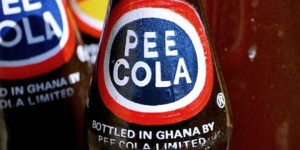When someone approaches a PR company with a great local product with the wish to market it worldwide in order to potentially reap profits from a greater market share, that someone may think having a great marketing team who will come up with an awesome marketing strategy for their business expansion will make it all happen.
But the reality is that nothing is ever that clear cut if you’re taking on the global market, because as many assume, ‘global’ is ‘universal’.
A lot of the time, people fail to see the importance of understanding the real difference in cultural nuances and languages. Sure, “Hello” is “Konnichiwa” in Japanese. But “Konnichiwa” can also specifically refer to “Good Afternoon” and when written in the Japanese alphabet hiragana, it uses characters that read out “kon-ni-chi-ha”, despite also having the syllable ‘wa’ in the alphabet. Why, do you wonder?
Ah, but of course, any native speaker would be amused and appreciate the effort any foreigner makes to learn their language. Unfortunately though in business and PR, it doesn’t work quite the same, and the effect, should it all mean differently, also means a big hole in the pocket that may not be ever sewn back up properly.
Take for example, Ghana’s popular soda, Pee Cola. To a Ghanian, “Pee Cola” means “Very Good Cola”. To a native English speaker, it relates very much to the accumulated content of the bladder…

Imagine that the native English speaker goes on to a pub, hoping to get a real good pint of ale. They then don’t know if they should be amused and place an order, or look for another pub…
Then maybe this person opts to go into a convenience store, feeling a little peckish.
While it seems all these amusing product names are to the delight (or horror) of the English, the Russians equally experience the same. Bledina, a brand of baby food, is close to the Russian word “блядина” or “блядь” (which is the Russian reference to a rather loose woman) – Serla Toilet Paper and Pedrini Kitchen Supplies are also amusing brand names to the Russians.
Fret not though, some of us do know the importance of not just having any translator do the linguistic work. Kazakhstan’s bank Kaspiysky (Caspian Bank) learnt from native translators that when pronounced quickly, it sounded very much like “bank s piskoi” – bank with a female’s sensitive part, to which they chose to not endure the embarrassment and opting for another name instead.
So really, translations should not just do with word-for-word, or left to translators who are certified to knowledge of any other foreign language – cultural awareness, though not acknowledged in certificates or documents, is essential to the process. Be sure that the translators or interpreters you work with really know what they are talking about!
